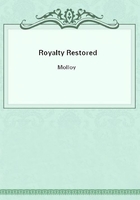
第6章 CHAPTER I.(4)
"It is time to look about you," said Lord Howard, speaking with the bluntness of a friend. "Empire and command are not now the question. Your person, your life are in peril. You are the son of Cromwell; show yourself worthy to be his son. This business requires a bold stroke, and must be supported by a good head. Do not suffer yourself to be daunted. I will rid you of your enemies: do you stand by me, and only back my zeal for your honour with your name; my head shall answer for the consequences."Colonel Ingoldsby seconded the advice Lord Howard gave, but Richard Cromwell hearkened to neither. "I have never done anybody any harm, and never will," said he. "will not have a drop of blood spilt for the preservation of my greatness, which is a burden to me." At this Lord Howard was indignant. "Do you think," he asked, "this moderation of yours will repair the wrong your family has committed by its elevation? Everybody knows that by violence your father procured the death of the late king, and kept his sons in banishment: mercy in the present state of affairs is unreasonable. Lay aside this pussillanimity; every moment is precious; your enemies spend the time in acting which we waste in consulting." "Talk no more of it," answered the Protector. "I am thankful for your friendship, but violent counsels suit not with me."The climax was at hand; his fall was but a question of time. "Awonderfull and suddaine change in ye face of ye publiq," writes Evelyn, on the 25th of April, 1659. "Ye new Protector Richard slighted; several pretenders and parties strove for the Government; all anarchy and confusion. Lord have mercy on us!"Before the month of May had expired, the House of Commons commissioned two of its members to bid Richard Cromwell leave the palace of Whitehall, and obtain his signature to a deed wherein he acknowledged complete submission to Parliament. His brief inglorious reign was therefore at an end. "As with other men,"he wrote to the House of Commons, "I expect protection from the present Government: I do hold myself obliged to demean myself with all the peaceableness under it, and to procure, to the utmost of my power, that all in whom I have any interest to do the same." He retired into Hampshire, where he dwelt as a private gentleman. His brother Henry resigned his position as Lord Lieutenant of Ireland and settled in Cambridgeshire. From this time the name of Cromwell was no longer a power in the land.
During two years subsequent to the death of Oliver the government of England underwent various changes, and the kingdom suffered many disorders; until, being heartily sick of anarchy, the people desired a king might once more reign over them. accordingly, they turned their eyes towards the son of him whom "the boldest villany that ever any nation saw" had sent to the block. And the time being ripe, Charles Stuart, then an exile in Breda, despatched Sir John Grenville with royal letters to both Houses of Parliament, likewise to the Lord Mayor of London and members of the Common Council, to Monk, commander of the forces, and Montagu, admiral of the fleet. These letters were received with so universal a joy and applause, that Parliament forthwith ordained Charles Stuart should be proclaimed "the most potent, mighty, and undoubted King of England, Scotland and Ireland."Moreover, both Houses agreed that an honourable body of Commissioners, all men of great quality and birth, should be sent to the king with letters, humbly begging his majesty would be pleased to hasten his long-desired return into England. And because they knew full well the royal exchequer was empty, Parliament ordered these noble gentlemen to carry with them a present of fifty thousand pieces of gold to the king, together with ten thousand to his brother of York, and five thousand to his brother of Gloucester. Nor was the City of London backwards in sending expressions of loyalty and tokens of homage and devotion; to evince which twenty valiant men and worthy citizens were despatched with messages of goodwill towards him, and presents in gold to the amount of twelve thousand pounds.
And presently Admiral Montagu arriving with his fleet upon the coast of Holland, awaited his majesty near Scheveling; and all things being in readiness the king with his royal brothers and a most noble train set sail for England.
It came to pass that on the 25th day of May, 1660, a vast concourse of nobility, gentry, and citizens had assembled at Dover to meet and greet their sovereign king, Charles II., on his landing. On the fair morning of that day a sound of cannon thundering from the castle announced that the fleet, consisting of "near forty sail of great men-of-war," which conveyed his majesty to his own, was in sight; whereon an innumerable crowd betook its joyful way to the shore. The sun was most gloriously bright, the sky cloudless, the sea calm. Far out upon the blue horizon white-winged ships could be clearly discerned. By three o'clock in the afternoon they had reached the harbour, when the king, embarking in a galley most richly adorned, was rowed to shore. Then cannon roared once more from the castle, and were answered from the beach; bells rang from church towers, and a mighty shout went up from the hearts of the people.